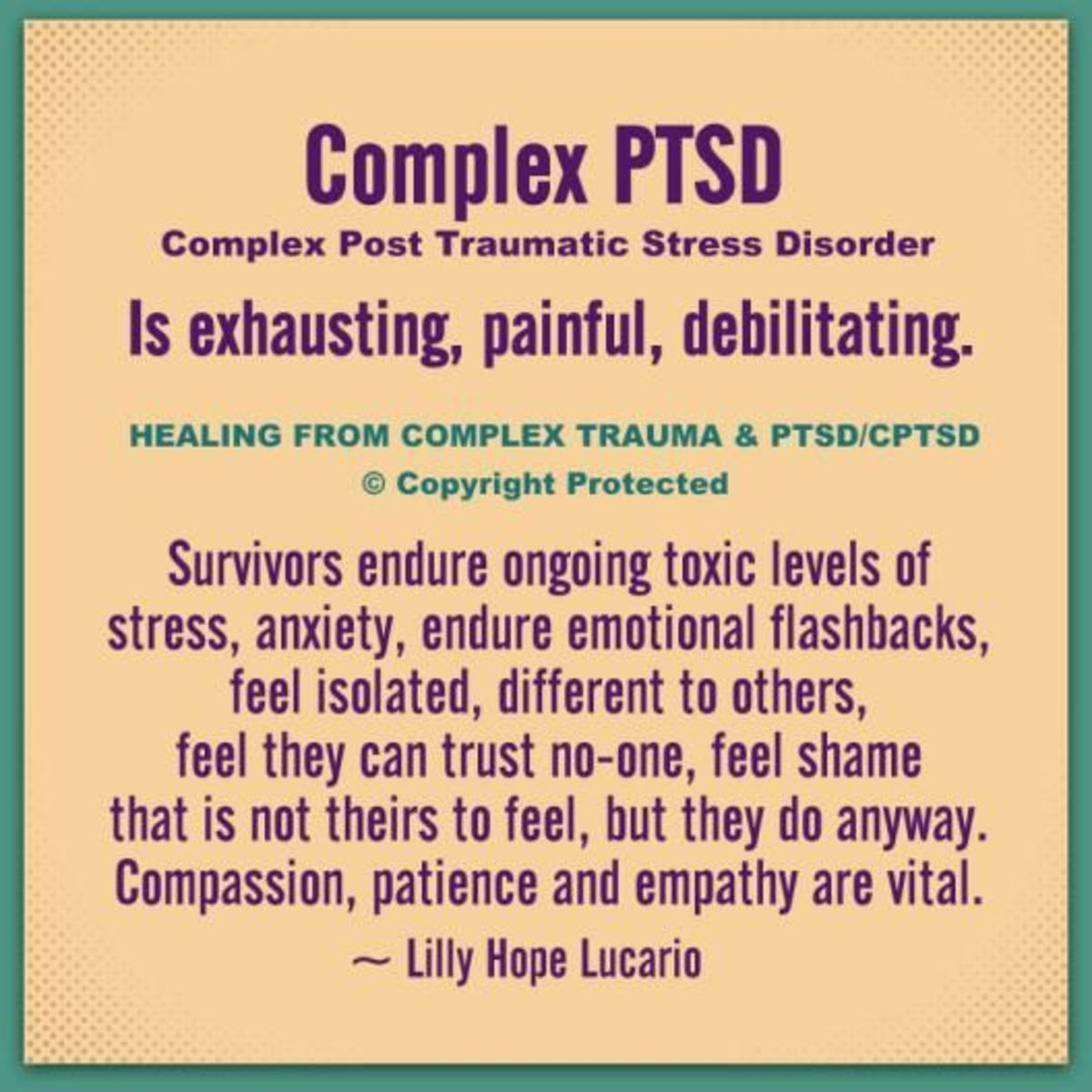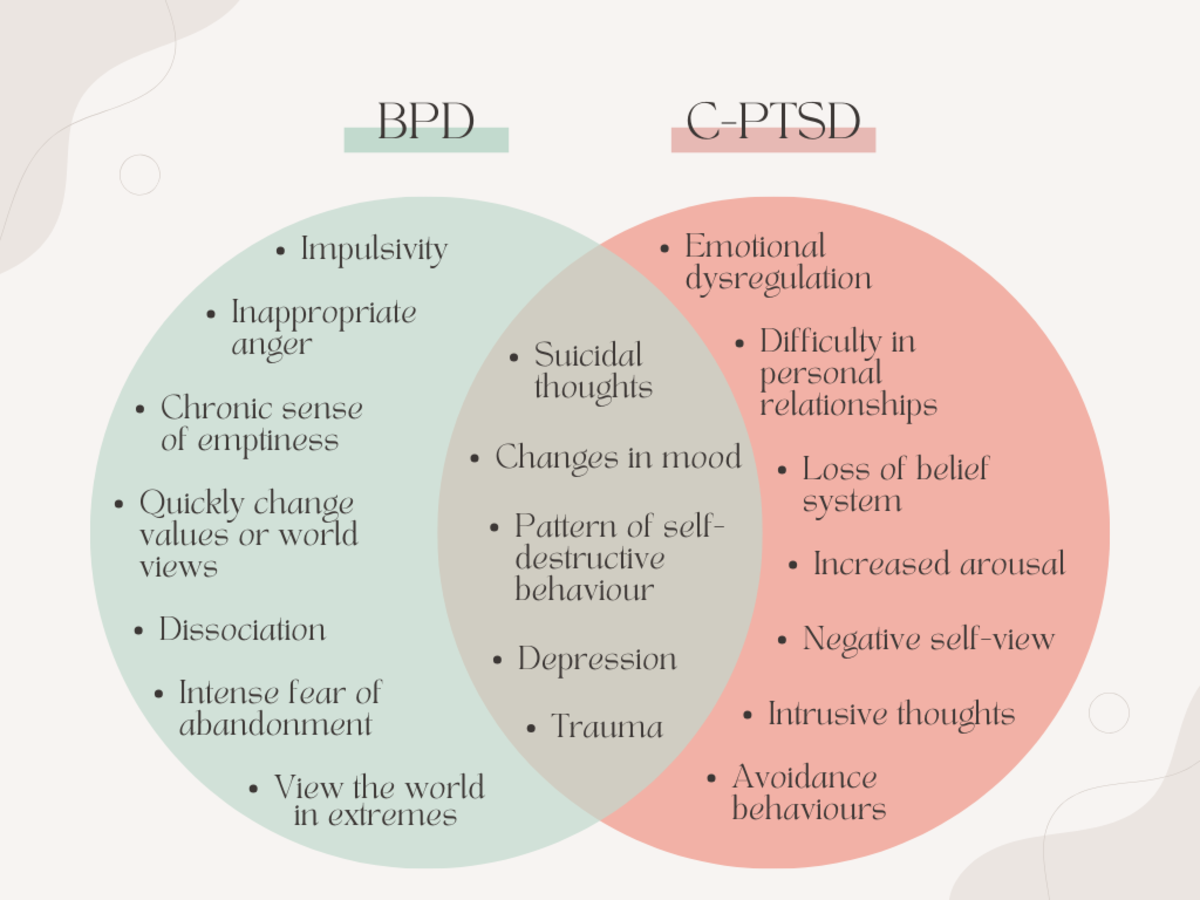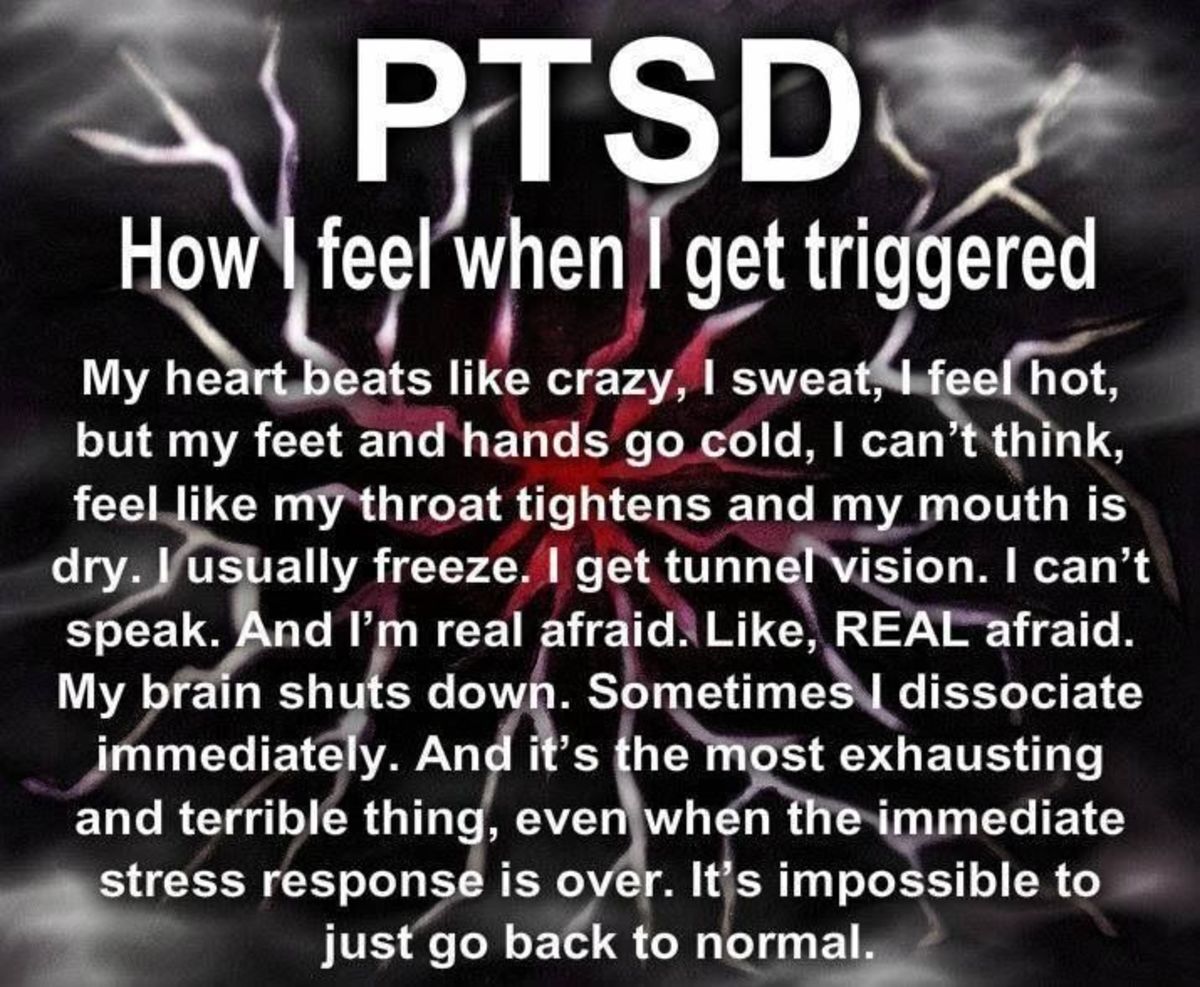Civilian PTSD
A better understanding of PTSD
Many people, when they hear the term PTSD (Post Traumatic Stress Disorder) immediately associate the diagnosis exclusively with military service, but nothing could be farther from the truth. This article will help the reader understand how PTSD can affect many people throughout the course of their lives despite a lack of veteran status.
The mayo clinic describes PTSD as.. “a mental health condition that's triggered by a terrifying event. Symptoms may include flashbacks, nightmares and severe anxiety, as well as uncontrollable thoughts about the event.”
This means that PTSD is not exclusive to the military but is most often associated with military service because of the high likelihood of traumatic events involving the threat if physical harm during war time.
While I am extremely sensitive to the special needs of our service men and women who suffer from PTSD following service in dangerous regions of the world, this article is written for those wishing to understand PTSD as it affects the civilian.
Traumatic events can cause PTSD
Surviving a car crash, living through a robbery, etc can be very traumatic. It can cause one to be very un nerved for some time following the event. Friends and family are the most important resources for helping us to cope with the stress left over from the event, and therapists can be vital in helping us to mentally process all the emotions as well.
A one time traumatic event does not often lead to PTSD as most individuals will come to terms with the events and properly process the emotions in a manner that allows them to get on with their lives with little interruption.
It is precisely the inability to cope with the stress, memories and emotions of the traumatic event to the point that it inhibits our daily lives that puts the D at the end of PTSD. All people who experience a traumatic event will experience PTS (Post Traumatic Stress) but only if symptoms such as re-experiencing the event, nightmares, and anxiety attacks persist beyond a month or so, and disrupt the persons ability to hold a job or maintain a relationship do we call it a Disorder with a capital D.
One subject stated she could not leave her house unattended following a house fire that happened while she was gone. After returning home to find the ashes of what was previously her garage she had an anxiety attack every time she tried to leave her home. This persisted for over 6 months but she did eventually work through the problem by talking to family and friends. She stated that verbalizing her feelings on the subject helped a lot and that she eventually “talked herself through it”
Physical domestic violence
Violence in the home will affect all involved. The aggressor more often than not has a life history that has brought him or her to the point of lashing out physically against those they may even profess to love. The direct victim of the violence may be deeply affected by the trauma even should they escape the abusive relationship, to the point that it negatively impacts their future relationships, even if violence not be present. The indirect victim(s) of the violence, such as children, will be affected because they are at an impressionable age in which their perceptions of how relationships work are being formed. As they grow to maturity, this possibly warped sense of interpersonal relations may well adversely affect their ability to maintain a healthy/stable relationship with a significant other. This is possibly why our original aggressor is violent towards his/her partner,… because he/she learned it in a violent home.
So we see that domestic violence creates many victims. the aggressor is more than likely a former child victim, the primary victim is likely to have problems in future relationships, and secondary victims are liable to present with relationship problems in their personal futures because of the ill effects as well.
One subject stated that she took years and two marriages to realize that she was mentally shutting down when a man yelled at her. It had been her childhood experience of watching and listening as two generations of women were beaten by men who always began the abuse with yelling loudly. Even though no man had ever struck her, the yelling male voice made her heart race and caused her to emotionally withdraw from the conversation. Interestingly, she stated that once she realized what was triggering the behavior in herself, she had to fight an overwhelming urge to react violently the next time a man yelled loudly in her company.
Assault
Of course assault will be very traumatic and difficult to process emotionally. It can affect the way a victim relates to the opposite sex for a long time if not for their whole lives.
If the assault occurs between adults it will be difficult to work through but at least you have an adult mind with which to process the emotions. If the abuse is experienced as a child it will have lasting effects that will effect nearly all aspects of the adult life weather the victim realizes it or not.
One subject sought therapy at the age of 66 following her divorce after 40 years of marriage and recently experiencing nightmares that she had no reasoning for. Her intimate life with her husband had always been stunted but not to the point of detrimental, she had never been comfortable around many men, and had been very protective of her daughters even into their 40’s. only after her sister confronted her and told her that both of them had been molested as children did she seek therapy. She had been less than 3 years old when the abuse took place and had no conscious memory of it, but the events had none the less shaped her for the rest of her life. her older sister had never told her in hopes of sheltering her from the truth. It was the seemingly benign news of the perpetrator's death 400 miles away and years after the fact that had triggered the nightmares and panic attacks regarding intimacy with her husband.... to the point that her mind was associating the night mares and panic attacks with the possibility that her husband had abused her,.. Even though she knew this was not true,.. Thus leading to the crumbling of their marriage.
PTSD is a human condition,… not just a military one.
While military service increases the likelihood that one might experience traumatic events, PTSD does not discriminate. All of us have experienced shocking events in our lives and have had to cope with the initial stress and later memories that traumatic events leave us with. It is only when the inability to cope leaves us unable to fully function in life that we call it a Disorder with a capital D. so next time you catch yourself acting irrationally in response to some trivial stimuli,… take a moment to ask yourself,… “why did I just do that?”………….. you might find out more about why you tick than you knew before,… and if you know it, you can master it.
Are you suffering from PTSD?.. A few questions you might ask yourself…
*are you having flash backs that cause you to relive the event(s) for minutes or even days at a time?
*are you having upsetting dreams or nightmares about the event(s)?
*are you avoiding thinking or even talking about the event(s)?
*are you no longer doing activities you once enjoyed prior to the event(s)?
*are you experiencing depression, a feeling of emotional numbness, or hopelessness?
*are you having memory problems or difficulty concentrating?
*are you having trouble maintaining relationships with those you were previously close to?
*are you easily startled or frightened more so now than before the event(s)?
*are you drinking more than before or engaging in other self destructive behavior?
*are you having trouble managing your anger?
*are you experiencing hallucinations, seeing or hearing things that aren't there?
symptoms of PTSD typically start within three months of an event, however, in a small number of cases symptoms may not appear until years after the event. symptoms can come and go. You may have more symptoms when things are stressful in general, or when you run into reminders of what you went through. Seeing a news report about sexual assault may make you feel overcome by memories of your own experience, just as hearing a car back fire might cause a veteran to relive combat experiences.
It's normal to have a wide range of feelings and emotions after a traumatic event, But if you have these disturbing thoughts and feelings for more than a month, if they're severe, or if you feel you're having trouble getting your life back under control, talk to your health care professional. Getting treatment as soon as possible can help prevent PTSD symptoms from getting worse.








